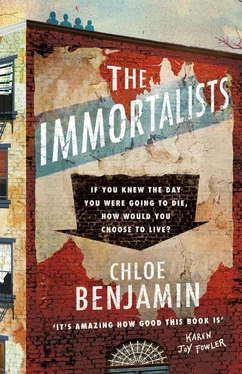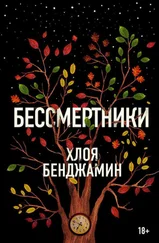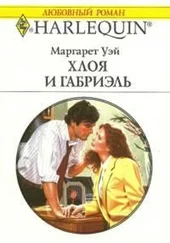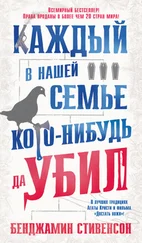‘That’s the most depressing thing I’ve ever heard,’ she said.
‘What about the poor chicken?’ asked Daniel, flicking Klara’s chewed apple off with two fingers. Gertie’s indignation melted, and suddenly she was snorting, too – a miracle, it seemed to Klara, who had not heard her mother laugh in years.
Still, Klara could not explain to anyone what it meant for her to lose Simon. She’d lost both him and herself, the person she was in relation to him. She had lost time, too, whole chunks of life that only Simon had witnessed: Mastering her first coin trick at eight, pulling quarters from Simon’s ears while he giggled. Nights when they crawled down the fire escape to go dancing in the hot, packed clubs of the Village – nights when she saw him looking at men, when he let her see him looking. The way his eyes shone when she said she’d go to San Francisco, like it was the greatest gift anyone had ever given him. Even at the end, when they argued about Adrian, he was her baby brother, her favorite person on earth. Drifting away from her.
At 72 Clinton, she lay in her old bed and closed her eyes until his presence was tangible. One hundred and thirty-five years ago, the Fox sisters heard rapping noises in their Hydesville bedroom. On a gray, blustery afternoon in September 1983, Simon knocked for Klara. It was more than a creak in the floorboards, more than the whine of a door: a low, sonorous pop that seemed to come from the bowels of 72 Clinton, as if the building were cracking its knuckles.
Klara’s eyes flew open. She could feel her heartbeat in her ears. ‘Simon?’ she ventured.
She held her breath. Nothing.
Klara shook her head. She was getting carried away.
She had all but forgotten the knock by June 21st, 1986, the fourth anniversary of Simon’s death. She’d spent previous anniversaries in bars, drinking vodka straight until she forgot what day it was, but this year, she forced herself to make coffee, tie her Doc Martens, and walk to the Castro. It was remarkable: many of the gay clubs had closed with the bathhouses, but Purp was still standing. It even looked freshly painted. She wished she could tell Simon, or Robert. Robert had never liked Purp, but Klara knew he would be glad to hear it survived.
Robert. She used to meet him downtown. In 1985, President Reagan still hadn’t acknowledged AIDS, and two men chained themselves to a building at UN Plaza in protest. Klara and Robert brought food and copies of the Bay Area Reporter to a growing mass of volunteers. If Robert wasn’t too sick, they slept outside. Klara begged a nurse who had cared for Simon to include Robert in the Suramin trial, and he received the last open spot. But the medication made him sick, so sick he couldn’t dance, and he stopped taking it within days. Klara banged on the door of the Eureka Street apartment where Robert now lived alone. ‘You owe it to Simon,’ she shouted. ‘You can’t quit now.’ By August, they weren’t speaking. By October, every patient in the trial was dead.
When Klara read about it in the paper, it felt like her whole body was on fire, like she could melt through the floor from the burn. She tried to call Robert, but his line had been disconnected. When she got to Academy, Fauzi told her that Robert had moved back to Los Angeles. Just picked up and left . That was seven months ago. She hadn’t been able to find him since.
She found an orange nasturtium on the ground and hooked it through Purp’s door handle. That night, she made Gertie’s meat loaf, which Simon had loved, and undressed for a bath. Underwater, her hair spread like Medusa’s. She could hear the echo of voices, muffled feet on the stairs. And then: a crack. She recognized it instantly as the noise she’d heard in New York.
She burst through the surface of the water, wetting the floor.
‘If you’re real,’ she said, ‘if it’s you, do it again.’
The noise came a second time, like a bat striking a ball.
‘Jesus Christ.’ When she began to shake, tears hit the water. ‘Simon.’
14.
June 1988: Raj stands onstage at Teatro ZinZanni as Klara paints her face in the dressing room. It’s the nicest one she’s ever been in, with a gold vanity and a TV screen that shows what’s happening onstage.
‘Life isn’t just about defying death,’ Raj says, his voice coming through the speakers on either side of the television. ‘It’s also about defying yourself, about insisting on transformation. As long as you can transform, my friends, you cannot die. What does Clark Kent have in common with the chameleon? Right when they’re on the brink of destruction, they change. Where have they gone? Nowhere we can see. The chameleon has become a branch. Clark Kent has become Superman.’
Klara sees the miniature Raj onscreen spread his arms. She lines her lips with bright red pencil.
Three months later, Klara flies to New York: her visits over the High Holidays have become a tradition. She is dizzy with happiness. Second Sight was a success, and though the collapsed birdcage poked like veins through Klara’s jacket sleeve – they’ll have the seamstress let it out – the audience didn’t seem to notice. Teatro ZinZanni has booked them for ten more shows.
Klara wants Raj to meet her family, but they can’t afford two tickets to New York. Soon, though, he says, they’ll have the cash to go anywhere. On Rosh Hashanah, Klara pulls Varya into the bunk room. It feels like her body’s all helium, like she could rise to the ceiling if she just took off her shoes.
She says, ‘I think we might get married.’
‘You started dating in March,’ says Varya. ‘It’s been six months.’
‘February,’ says Klara. ‘Seven.’
‘But Daniel hasn’t even proposed to Mira.’
Mira is Daniel’s girlfriend. They met one year ago, when Mira was studying for an art history degree, and she’s already come to meet Varya and Gertie. As soon as Daniel gets a job, he plans to propose with a ruby ring Saul gave Gertie.
Klara tucks a lock of Varya’s hair behind her ear. ‘You’re jealous.’
She’s observing Varya, not accusing her, and it is this – the tenderness in Klara’s voice – that makes Varya wince.
‘Of course not,’ she says. ‘I’m happy for you.’
Varya must think it’s another one of Klara’s acts, something she’ll quit in a month or two. She doesn’t know they’ve all but done it, that Klara has her dress and Raj has his suit, that they plan to go to City Hall as soon as Klara returns from New York. She certainly doesn’t know about the baby.
It was an unsurprising surprise. Klara knows what happens when you’re careless, but that doesn’t mean she isn’t. And it was more than that, it was the surge of it, dancing on the brink of causality – if this, then – with the man she loves. What is growing a baby if not making a flower appear from thin air, turning one scarf into two?
She’s stopped drinking. By the third trimester, her mind is clear, never better – but that’s the problem, it’s too empty, miles and miles of space in which Klara sits and thinks. She distracts herself by imagining the baby. When he kicks, Klara sees his little boy feet. She’s told Raj they have to name him Simon. During the last month, when she’s so swollen her shoes don’t fit, when she can’t sleep more than thirty minutes at a time, she pictures Simon’s face and doesn’t resent the baby anymore. And so, when a doctor pulls the child from Klara’s body on a stormy night in May and Raj cries, ‘It’s a girl!’ Klara knows that he must be mistaken.
‘That’s not right.’ She is delirious with pain; it feels as though a bomb exploded in her body, and she – the empty structure – is on the verge of collapse.
Читать дальше








![Мелани Бенджамин - Госпожа отеля «Ритц» [litres]](/books/384861/melani-bendzhamin-gospozha-otelya-ritc-litres-thumb.webp)



